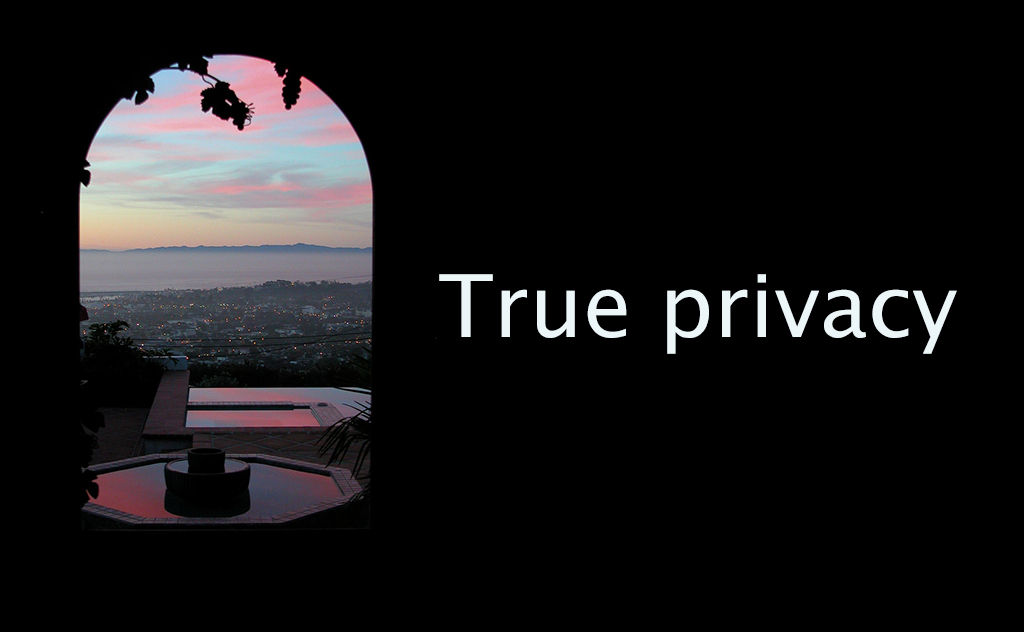

In the physical world we know what privacy is and how it works.
We know it because we've developed privacy technologies and norms for thousands of years.
Doors and windows are privacy technologies. So is clothing. So are manners respecting the intentions behind others' use of those things.
The Internet is a new virtual world we also inhabit. It is also less than twenty years old. It came to us with the first browsers, ISPs, email and other handy graces. In many ways it was a paradise for everything on it. But, as with Eden, we were all naked there — and we still are, except for the homes and clothing we get from companies like Google, Amazon, Facebook and Apple.
What those companies give us is as modern as the middle ages. We toil and prosper inside the walls of their castles, and on their company lands. In many ways, this isn't bad. But it isn't ours.
To have true privacy in the networked world, we should be in charge of our own lives, our own data, our own things, in our own ways.
We should be able to control what we disclose, to whom, and on what terms.
We should be able to keep personal data as secret and secure as we like.
We should be able to share that data with others in faith that only those others can see and use it.
Our identities should be sovereign — ours alone — and disclosed to others at our discretion. This is how identity works in the physical world when we walk down the street or shop in a store. Other people recognize us as human beings, but they don't know who we are until we tell them.
In the physical world, companies don't plant tracking beacons on people, or follow them around to see who who are and what they do. Yet this kind of thing is all but standard on the commercial Web — in spite of negative demand for it. According to TRUSTe, 92% of U.S. Internet users are worried about their privacy online today — in 2014. That's up from 90% in 2013, and 89% in 2012. Numbers and trends for the U.K. are nearly identical.
Those numbers won't change as long as we don't control our own data and our own ways of sharing it. Until we have true privacy — privacy that we define for ourselves — all we'll have are:
Qredo is the first platform that gives developers ways to build true privacy into apps and other systems. Once we have true privacy, we can finally civilize the online world.